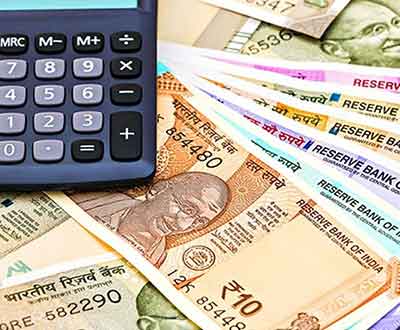Date: 05/10/2022
Relevance: GS-3: Indian Economy and issues relating to planning, mobilization of resources, growth, development, and employment.
Key Phrases: Direct tax regime, Indian tax system, corporate tax, more progressive and just tax system, Covid-19 pandemic, an inordinately high share of indirect taxes.
Why in News?
- It is well known that indirect taxes fall disproportionately on the poor, and therefore a tax regime that relies mostly on such taxes is both unjust and inefficient in terms of not mopping up the excess profits and incomes of large corporations and rich families.
Indian Tax system:
- The Indian tax system has always been broadly regressive, with an inordinately high share of indirect taxes, even when compared to countries at similar levels of per capita income.
- When combined with other regulatory measures and public policies that have greatly increased the market power of some large corporates, in particular, the system has greatly added to the process of making India one of the most unequal countries in the world.
- In the overall composition of central government tax revenues, indirect taxes have generally accounted for more than half of total tax revenues.
- The ratio has worsened in recent years, with indirect taxes going up from around 51 percent of total tax revenues in 2016-18, to as much as 59 percent in 2020-21 and remaining high at 54 percent in 2021-22.
Direct tax path:
- The direct tax regime is certainly lacking in many ways, with the abolition of wealth taxes and negligible inheritance taxes, despite the clear evidence of extreme concentration of wealth in a few hands.
- The Indian government has received at least some information about assets of Indian citizens held abroad, yet it has neither pursued this systematically nor allowed the lists of such individuals to be made public.
- This lack of transparency and inaction enables wealthy individuals to continue to prosper while most people face extremely dire economic conditions.
- However, it is in the matter of corporate taxation that the upward bias of the government has become particularly evident.
- The recent pattern of revenues from corporate taxation shows a dramatic decline in corporate tax receipts in both fiscal years 2019-20 and 2020-21.
- The recovery in 2021-22 appears good in contrast, but still leaves the share of corporate taxes in total taxes well below the levels of several years earlier.
Reasons for the sharp decline:
- The sharp and unusual decline in tax revenues was not only, or even dominantly, because of supposedly “God-given” external factors like the Covid-19 pandemic that battered the economy.
- The first major decline occurred well before the pandemic and was the result of the explicit decision in September 2019 to offer significant tax breaks to companies.
- The corporate tax rate was lowered from 24 percent to 21 percent and a variety of other fiscal sops were offered, with the supposed aim of generating more private investment in a context of economic stagnation.
- In the event, private investment did not rise but continued to fall in real terms, but the large corporates in particular happily pocketed the windfall gains from lower tax rates.
Declining payout:
- Between 2018-19 and 2020-21, the rate of taxes paid out of the recorded profits of these companies declined from 34 percent to 28.7 percent.
- Even this average can be misleading, as it has been found that the incidence of corporate taxes is also unevenly distributed, with the large corporations (and multinational companies) paying much lower effective rates of taxation than middle and small companies.
- It has been estimated that some of the largest corporations pay very low, almost negligible taxes even when they experience very high profits because they are able to utilize various loopholes in the tax regime to their own advantage.
- For example, one of the largest corporate behemoths in the country, Reliance Industries Limited, is estimated to have paid an effective tax rate of only 3.1 percent in 2020-21, a year when its profits increased by 35 percent.
Conclusion:
- The inability or unwillingness to collect taxes from large corporates and rich individuals has several adverse consequences.
- It is one of the main reasons why people in the country continue to suffer from inadequate public services, why State governments suffer from a real financial crunch that prevents them from meeting basic obligations to their citizens, and why the government’s macroeconomic policy is so conservative and pro-cyclical to the point that it cannot effectively counter downswings and shocks that adversely affect people’s lives and livelihoods.
- The demand for a more progressive and just tax system is, therefore, an essential part of a progressive economic agenda.
Source: The Hindu BL
Mains Question:
Q. What are the impacts of reducing the corporate tax rate by the Taxation Laws (Amendment) Act, 2019 on tax collection in India? Discuss.






















